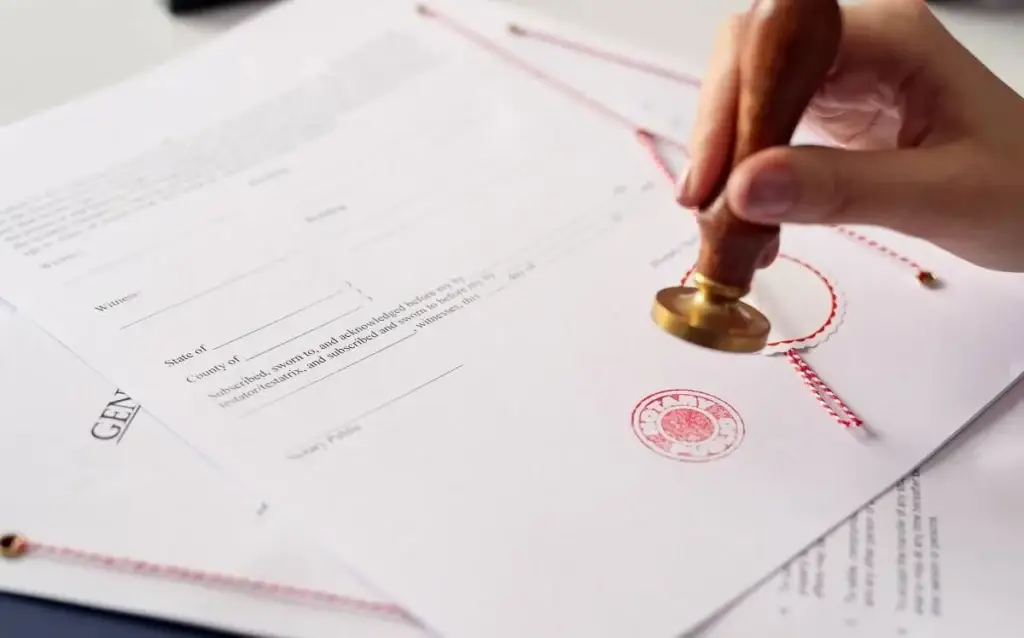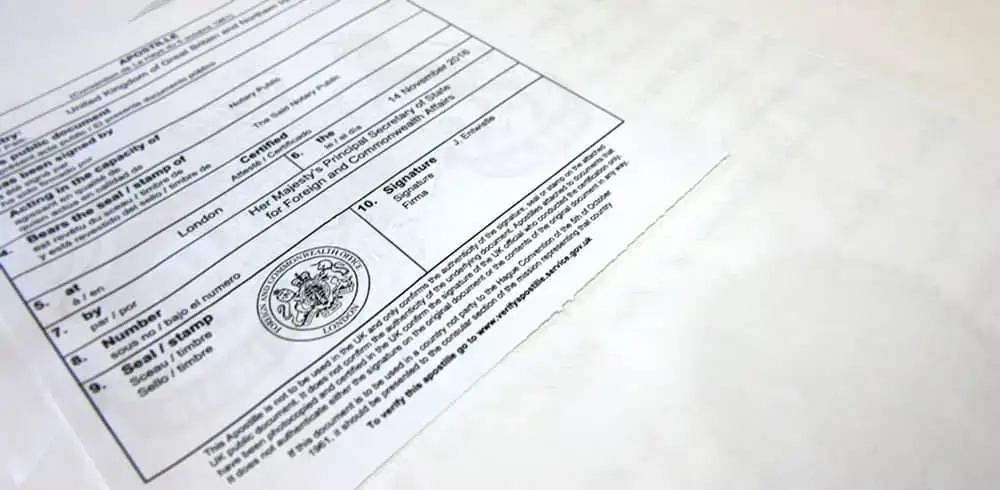Key Facts
- Apostille certification is crucial for verifying U.S. documents for international use, ensuring legal acceptance abroad.
- Identify the type of document needing apostille, such as birth certificates, diplomas, or business agreements.
- Some documents require notarization before apostille; ensure a commissioned notary public properly notarizes them.
- Submit your document to the Secretary of State of the issuing state, as requirements and fees vary by state.
- If the destination country is not part of the Hague Convention, additional embassy legalization steps are necessary after obtaining an apostille.
Apostille certification is an essential process for verifying U.S. documents for international use. Whether you need to authenticate a birth certificate, diploma, business document, or power of attorney, understanding the apostille process ensures smooth legal acceptance abroad. This guide explains each step in detail, making international document legalization simple.
Understanding the Apostille Process
An apostille is a certification issued by a designated authority that verifies the authenticity of a document for use in foreign countries that are part of the Hague Apostille Convention. If a document is needed in a country that is not part of the convention, additional steps, including embassy legalization, may be required. The process varies based on the type of document and the state of issuance.
Determine the Type of Document You Need to Apostille
Before initiating the apostille process, identify the document that requires authentication. Common documents include birth and marriage certificates, educational diplomas, notarized affidavits, business agreements, and background checks. Some documents may need notarization before obtaining an apostille, while others, such as vital records, must be certified copies from the appropriate issuing agency.
Get Your Document Notarized (If Required)
Certain documents, such as affidavits, power of attorney, and business agreements, require notarization before the apostille certification. Ensure that a commissioned notary public notarizes the document correctly. Notarization confirms the signer’s identity and willingness to sign, making the document legally valid for further authentication.
Submit the Document to the Secretary of State
Each U.S. state has a Secretary of State office that handles apostille requests for documents issued within that state. If the document was notarized or issued by a state agency, it must be sent to that state’s Secretary of State office. For example, a California birth certificate must be apostilled by the California Secretary of State. Requirements, fees, and processing times vary, so checking the specific state’s website is essential.
Federal Apostille for Certain Documents
Suppose the document is a federally issued record, such as an FBI background check, patent document, or naturalization certificate. In that case, the apostille must be obtained from the U.S. Department of State in Washington, D.C. Federal documents cannot be processed at the state level. Instead, they require authentication from the federal government before use abroad.
Pay the Required Fees and Submit Your Application
Apostille fees vary depending on the state or federal agency processing the request. Some states offer expedited services for an additional cost. Most Secretary of State offices accept payments via check, money order, or credit card. Ensure the application form is accurately completed and include a self-addressed return envelope to receive the apostilled document.
Processing Time and Receiving the Apostille
The processing time for an apostille depends on the issuing authority and whether expedited services are requested. Some states process apostilles within a few business days, while others may take weeks. Once completed, the apostilled document will be mailed back to you or made available for in-person pickup, depending on the service options available.
What to Do If Your Document Needs Embassy Legalization
If the destination country is not part of the Hague Apostille Convention, additional steps are required after obtaining an apostille. This includes authentication by the U.S. Department of State and legalization by the foreign embassy or consulate. Embassy legalization ensures that the document is officially recognized in the non-Hague country.
Conclusion
Apostilling a document in the U.S. ensures that it is legally accepted for international use. Whether dealing with vital records, legal documents, or business papers, following the correct procedure streamlines the authentication process. For professional assistance with notary and apostille services, visit Anshin Notary. In addition to apostille certification, our services include Live Scan Fingerprinting, FBI Background Checks, Fingerprint Cards, Notary Public, Apostille, Business Services, and Expungement. Our expertise guarantees that your documents meet international requirements efficiently.
Frequently Asked Questions
What is the difference between an apostille and authentication?
An apostille is a special form of certification used for documents being sent to countries that are members of the Hague Apostille Convention. It verifies the authenticity of the issuing signature, seal, or stamp. For countries not in the Hague Convention, a lengthier process called authentication—including additional steps at the U.S. Department of State and the destination country’s embassy or consulate—is required to have the document legally accepted abroad. Always check your destination country’s requirements before proceeding.
How long does it take to get an apostille?
The processing time for an apostille depends on the state where the document was issued and how urgent your request is. Standard service takes from a few business days up to several weeks. Many states offer expedited processing for an additional fee. For the fastest results, check with your Secretary of State’s office, submit all required documents accurately, and request expedited options if available.
Can I apostille a photocopy of a document?
Some states allow you to notarize a photocopy and then apostille that notarized copy, while others require an original or a certified copy. Always check the specific requirements for your state and type of document to avoid rejection. Original certified documents are generally more widely accepted abroad.
Can I get an apostille for a document in a foreign language?
Most U.S. authorities require a certified English translation of foreign-language documents before processing the apostille. Some states allow bilingual documents or translations, but it’s recommended to provide an English version to ensure smooth processing and acceptance by international authorities.
Do I need to appear in person to request an apostille?
Many states allow you to apply for an apostille by mail, so visiting in person isn’t always necessary. However, certain agencies offer walk-in or expedited services for those who prefer or need faster, face-to-face processing. Always confirm whether mail-in, drop-off, or in-person appointments are available at your state’s Secretary of State office.
Does an apostille expire?
An apostille certificate itself does not expire, but some countries may require recently issued apostilles dated within a specific timeframe (such as within the past six months). Always verify the requirements of your destination country to prevent unnecessary delays.
How do I know if my document requires notarization before an apostille?
Private documents (like affidavits, powers of attorney, or business contracts) typically need to be notarized before getting an apostille. Government-issued documents (such as certified birth certificates or court orders) usually do not need additional notarization and can be submitted directly for an apostille. When in doubt, confirm with your notary or the Secretary of State.
Where do I send a federal document for an apostille?
Federal documents (such as FBI background checks or naturalization certificates) must be submitted to the U.S. Department of State in Washington, D.C. for apostille certification. State records are processed through the issuing state’s Secretary of State office.
What if my document is rejected for an apostille?
Common reasons for apostille rejection include incorrect or missing notarization, improper certification, or incomplete application forms. To reduce your risk of rejection, carefully review your application, follow all requirements, and consult a professional apostille service if you need guidance.
Can I use an apostille from one state in another state?
No. Apostilles must be issued in the state where the document was originally generated. For example, a New York birth certificate can only be apostilled by the New York Secretary of State, regardless of where you currently reside.
Also Read: 7 Fingerprint Card Mistakes That Could Delay Your Background Check



